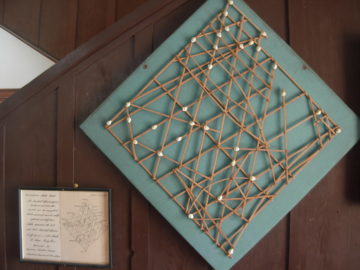Eric Moses Gurevitch in the Boston Review:
 According to a familiar story, science was born as a pastime of seventeenth-century European gentlemen, who built air pumps, traded telescopes, and measured everything from the size of the earth to the eye of a fly as they sought to uncover the laws of nature. Through careful experimentation and observation of nature, these men—who called themselves natural philosophers—distinguished themselves from the scholastic schoolmen of yore, who had instead busied themselves with writing commentary upon commentary on Aristotle and Aquinas. They also wrote about themselves. They formed societies, took notes at their meetings, compiled their notes into journals, and penned books recording their achievements; it was a mere seven years after the founding of the Royal Society in 1660 that Thomas Sprat published its first history. Reason had finally come into its own, and it arrived with a diligent group of stenographers.
According to a familiar story, science was born as a pastime of seventeenth-century European gentlemen, who built air pumps, traded telescopes, and measured everything from the size of the earth to the eye of a fly as they sought to uncover the laws of nature. Through careful experimentation and observation of nature, these men—who called themselves natural philosophers—distinguished themselves from the scholastic schoolmen of yore, who had instead busied themselves with writing commentary upon commentary on Aristotle and Aquinas. They also wrote about themselves. They formed societies, took notes at their meetings, compiled their notes into journals, and penned books recording their achievements; it was a mere seven years after the founding of the Royal Society in 1660 that Thomas Sprat published its first history. Reason had finally come into its own, and it arrived with a diligent group of stenographers.
Of course, these men were not actually the first to make observations or perform experiments. But their self-congratulatory narrative provided a powerful resource to explain the economic and political hegemony of Europe in the centuries to follow.
More here.
